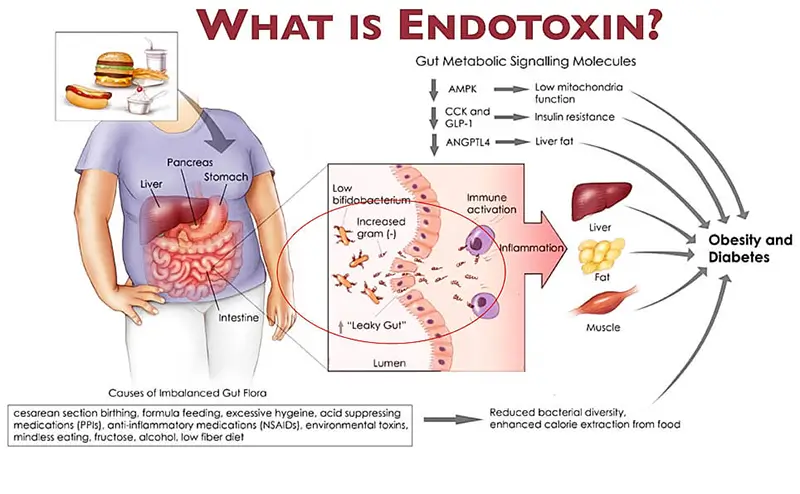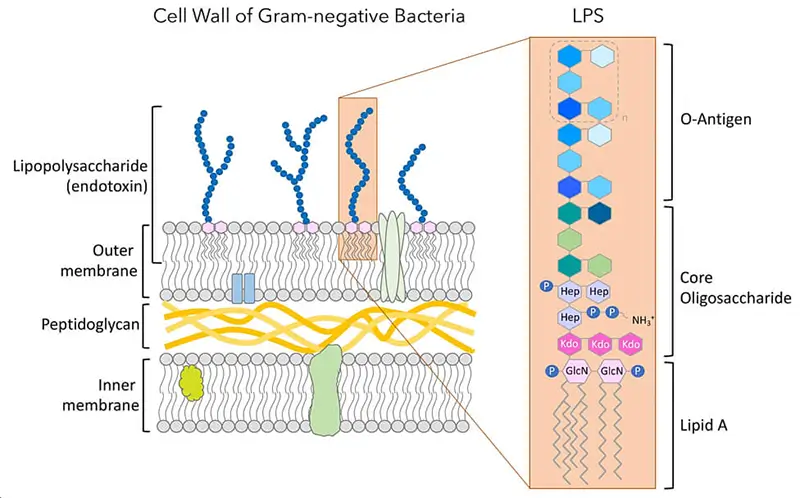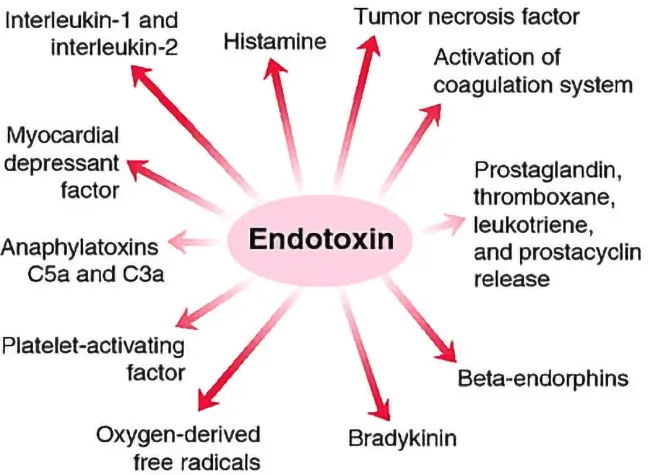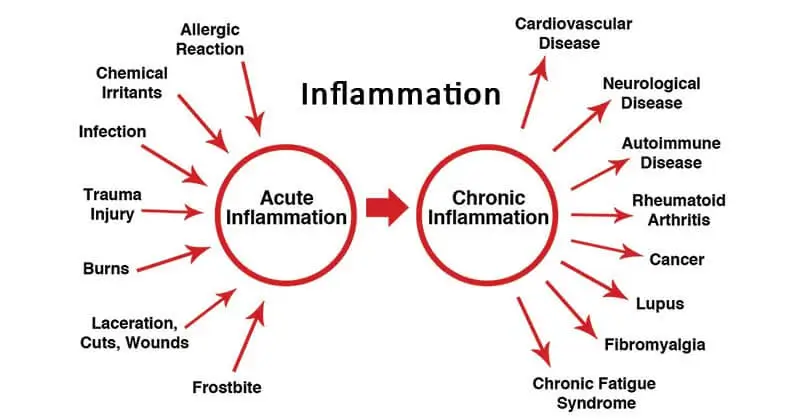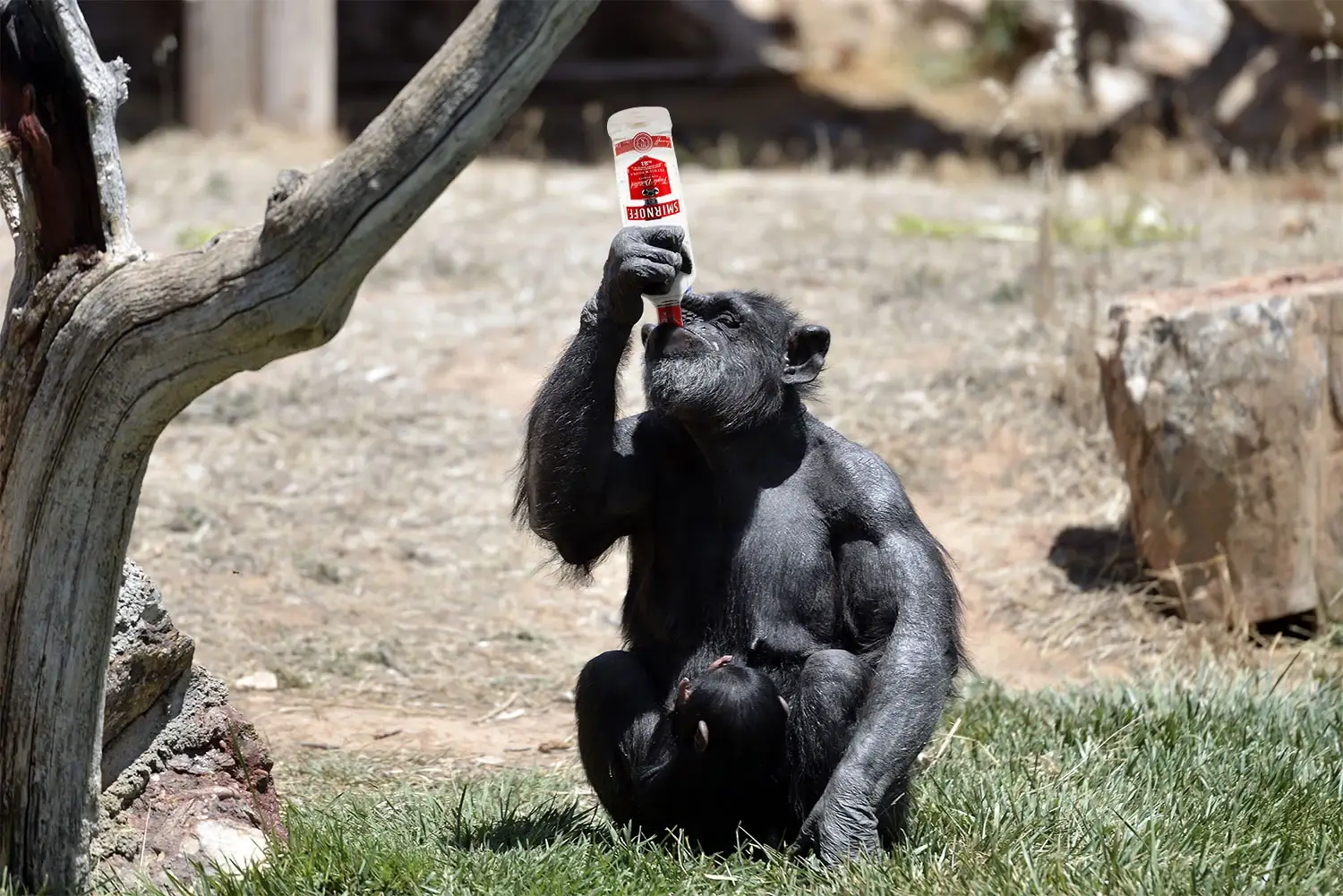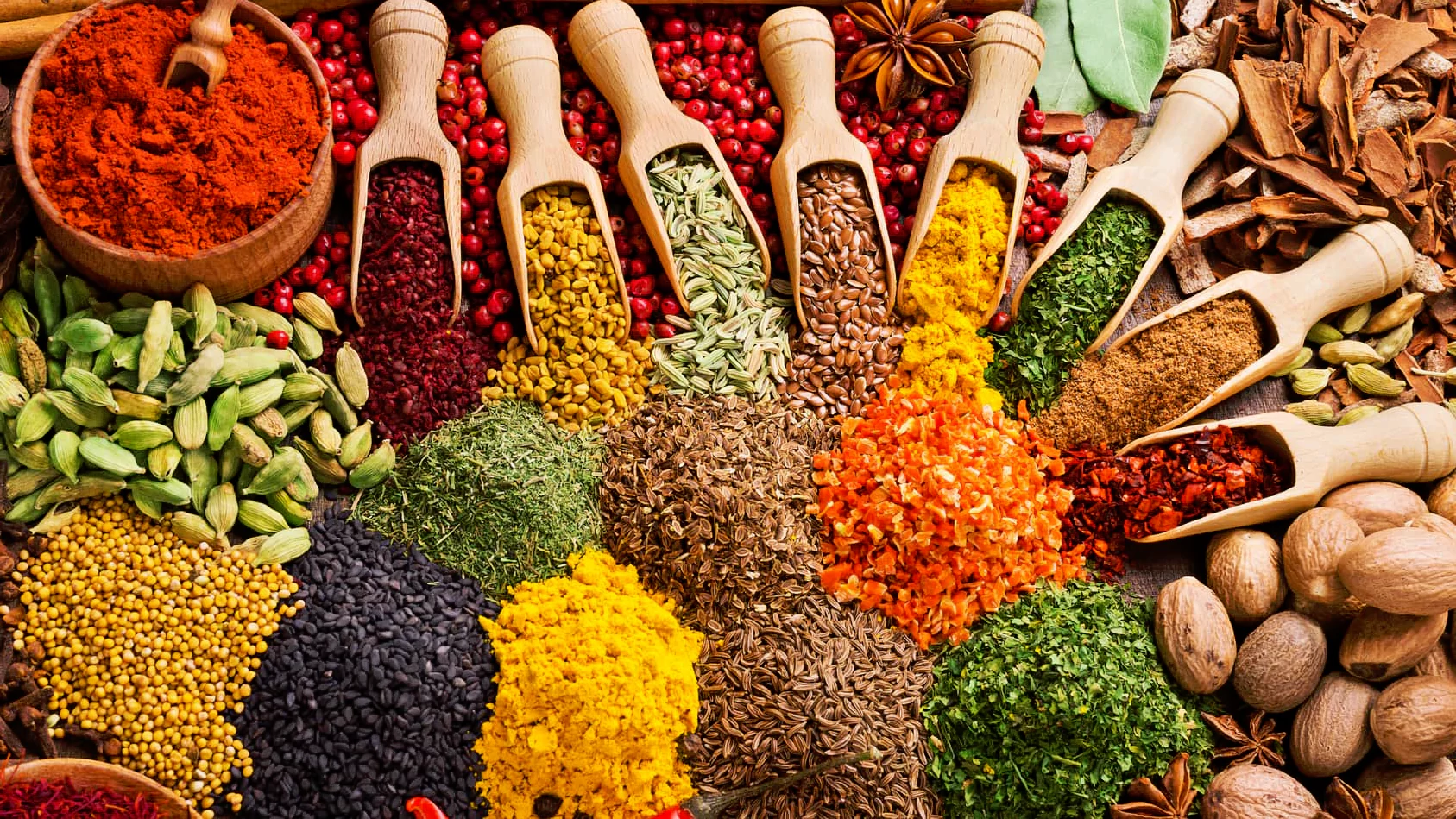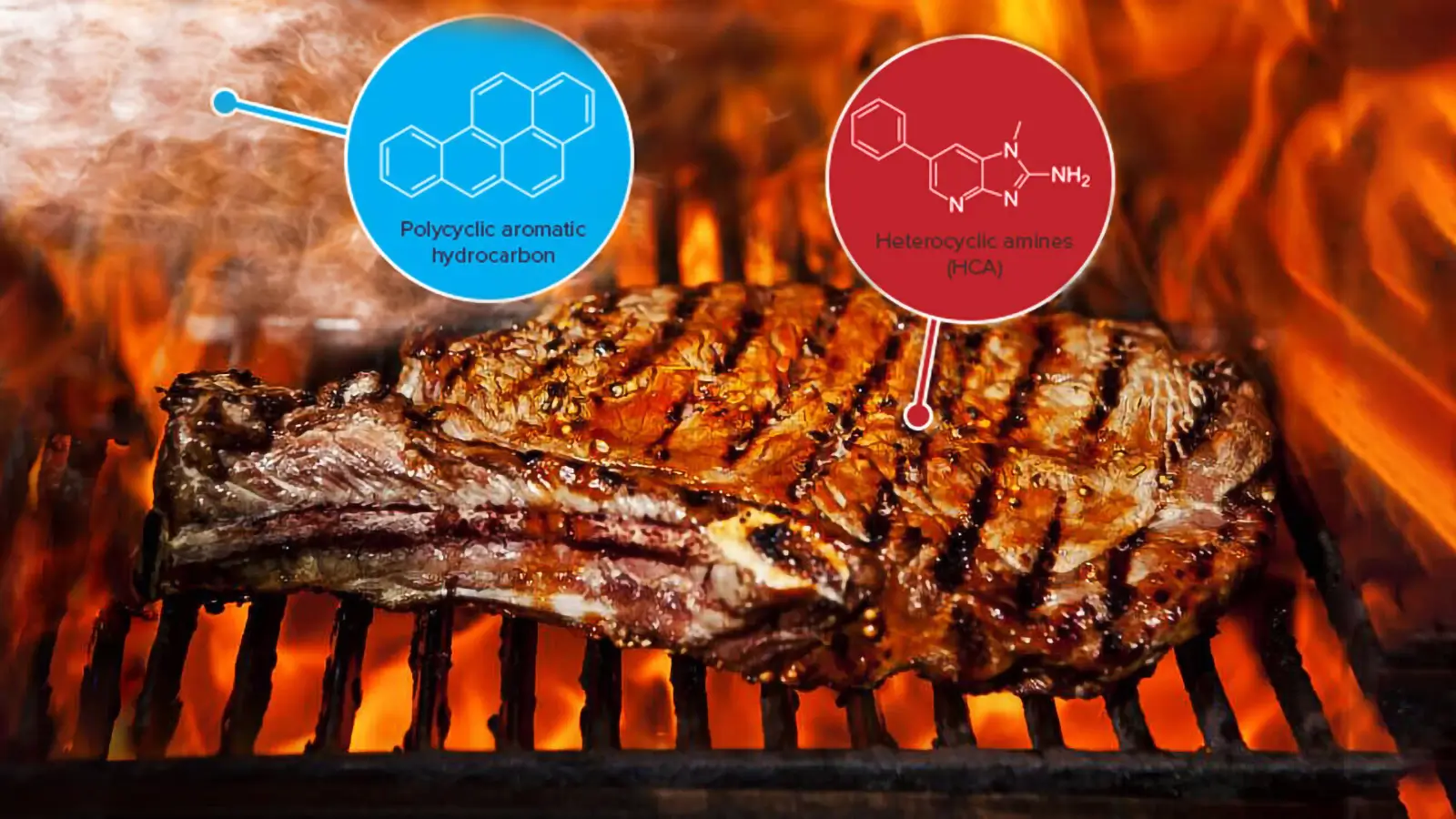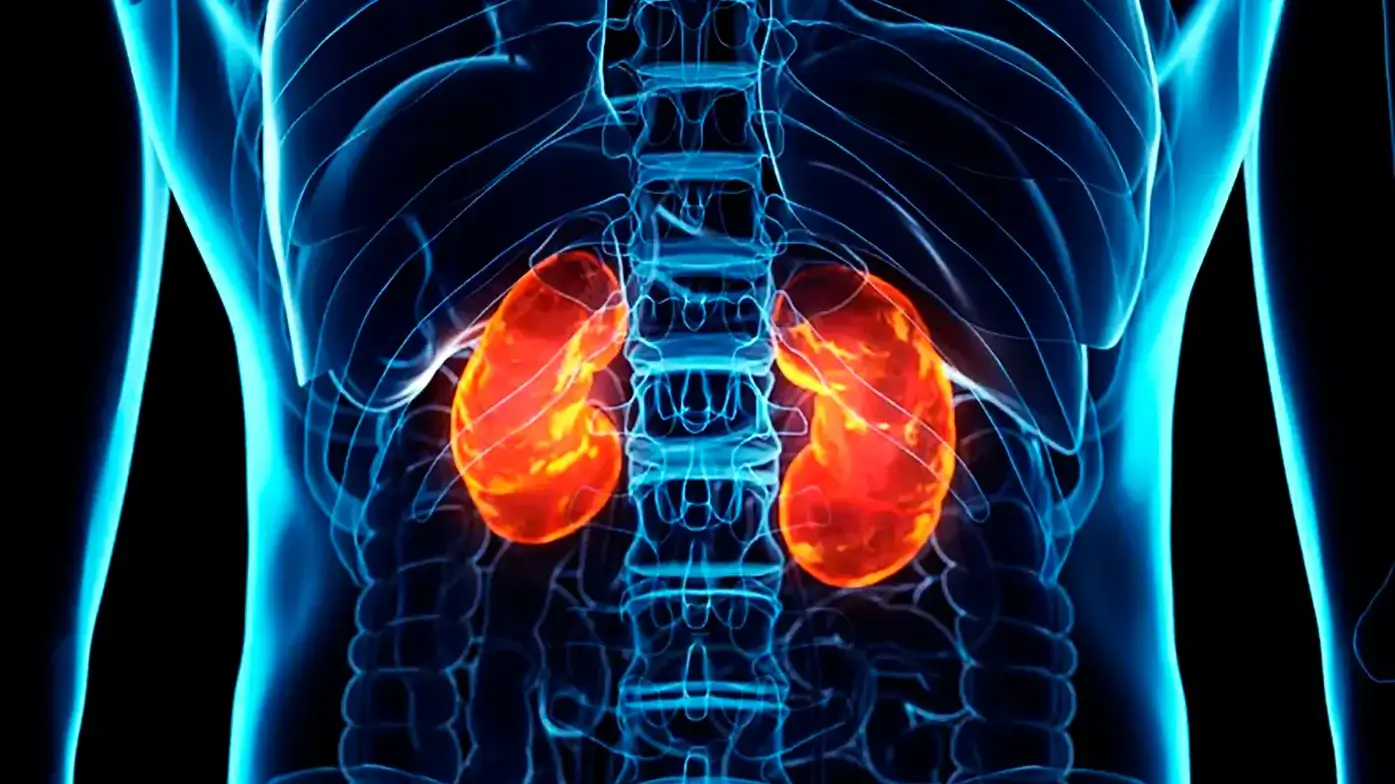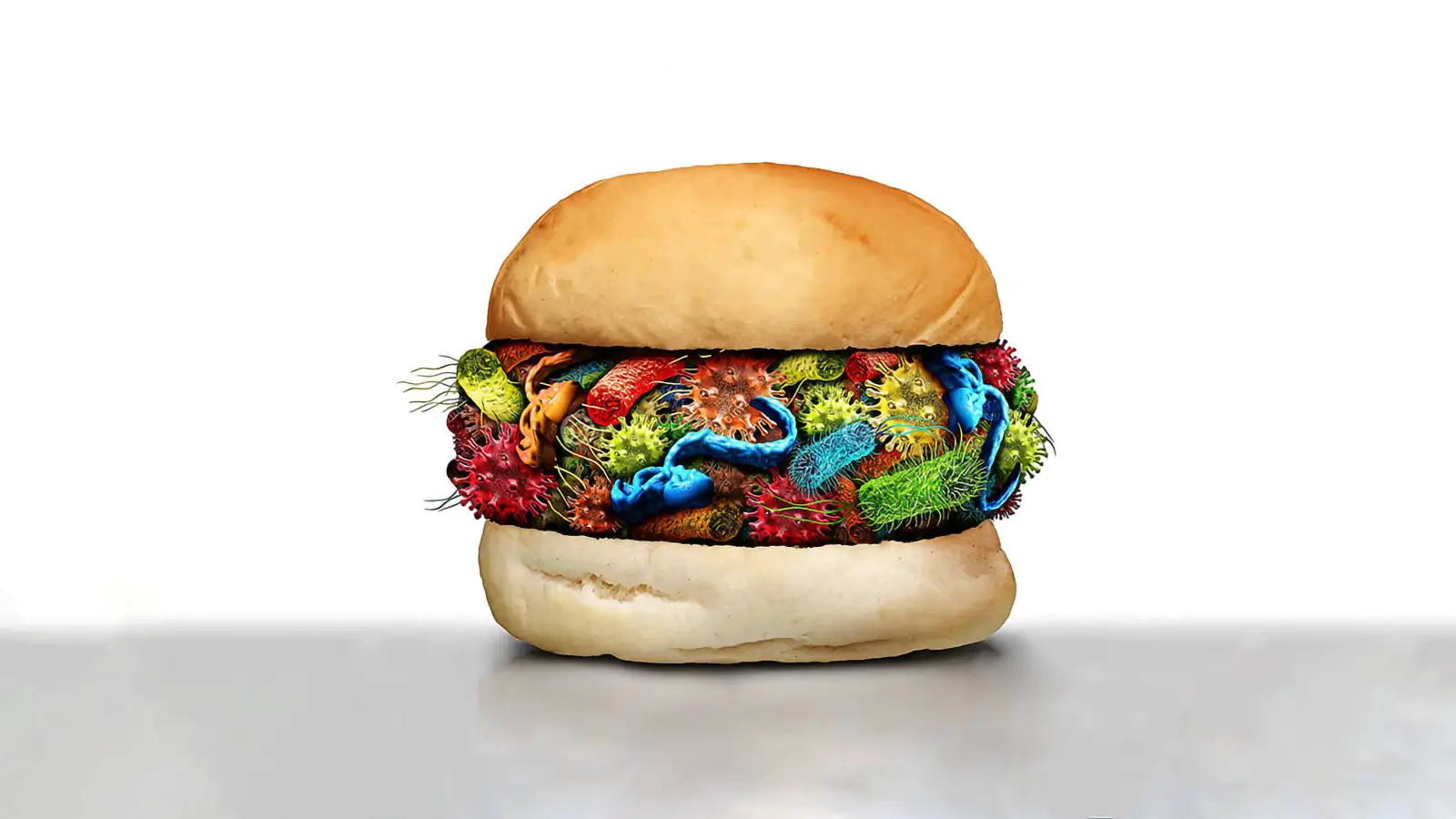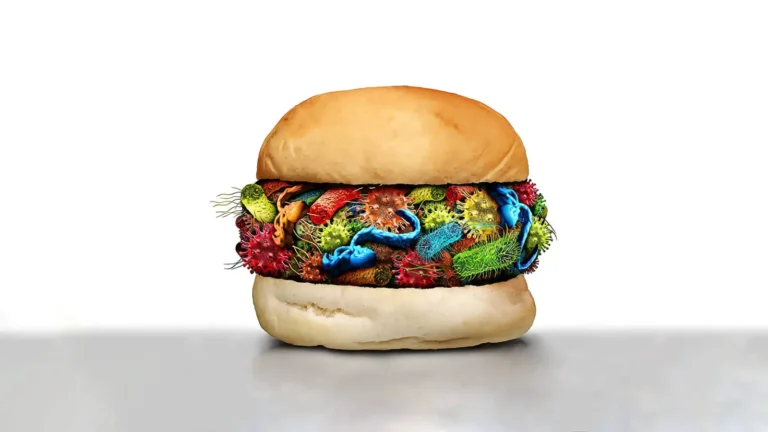La carne cocida bacterias endotoxemia la Inflamación y la dieta
Son los seres humanos omnívoros en un verdadero anatómica sentido? Hay una diferencia fundamental en la forma en que el tracto digestivo trabaja en plantas vs consumo de carne de las especies.
Milos Pokimica
Escrito por: Milos Pokimica
Revisado Médicamente Por: Dr. Xiùying Wáng, M.D.
Actualizado el 9 de junio de 2023El papel emergente de la inflamación crónica en las principales enfermedades crónicas de la sociedad moderna ha impulsado la investigación sobre el impacto de la nutrición y los patrones alimentarios en el estado inflamatorio. La mayoría de los estudios en humanos han relacionado la ingesta alimentaria con marcadores de inflamación sistémica, como la proteína C reactiva de alta sensibilidad (PCR-as), la interleucina-6 (IL-6) y el factor de necrosis tumoral alfa (TNF-).
Se han establecido influencias significativas de la dieta en el índice glucémico (IG) y la carga glucémica (CG), la fibra, la composición de ácidos grasos, el magnesio, los carotenoides y los flavonoides. En la mayoría de los estudios observacionales y de intervención, la dieta basada en alimentos vegetales integrales o incluso un patrón dietético mediterráneo tradicional, que suele tener una elevada proporción de grasas monoinsaturadas (AGMI) frente a grasas saturadas (AGS) y ácidos grasos poliinsaturados (AGPI) ω-3 a ω-6, y que aporta abundantes frutas, verduras, legumbres y cereales, ha mostrado efectos antiinflamatorios en comparación con los patrones dietéticos típicos de Norteamérica y el norte de Europa. Existe una amplia gama de factores que influyen en la inflamación causada por la dieta, pero una dieta integral rica en antioxidantes y nutrientes puede convertirse en la dieta de elección para disminuir la inflamación crónica en la práctica clínica.
La inflamación prolongada de bajo grado está relacionada con el aumento del estrés oxidativo y la alteración del metabolismo de la glucosa y los lípidos en las células grasas (adiposas), los músculos y el hígado. Por ello, las investigaciones indican que ciertos componentes de la dieta pueden influir en estas vías inflamatorias clave.
Uno de los factores que crea picos de inflamación tras el consumo de productos animales es un proceso conocido como endotoxemia. Se ha propuesto que la endotoxemia metabólica inducida por la dieta es una de las principales causas de inflamación, y estas vías parecen ser perjudiciales para un envejecimiento saludable.
Nosotros, como humanos, a diferencia de las especies carnívoras, tenemos filtros de resistencia muy bajos, lo que significa que cualquier bacteria viva que comamos estará creando inflamación, y la dieta puede matarnos si la bacteria es peligrosa. No podemos comer carne cruda. Los animales carnívoros tienen ácidos biliares extremadamente corrosivos que son capaces de matar cualquier microorganismo vivo y su sistema digestivo es prácticamente estéril. Nosotros, como cualquier otro comedor de plantas, tenemos ácidos biliares suaves y filtros de baja resistencia y tenemos que cocinar la carne y cualquier otro alimento que tenga el potencial de propagar una enfermedad infecciosa. Por ejemplo, la pasteurización es obligatoria.
Lo que la gente no entiende es que aunque cocinemos la carne no desmaterializamos por arte de magia todas las bacterias que había dentro. Sólo las matamos por el calor, pero siguen ahí. Los microorganismos siguen en la carne, pero muertos. Ya no supondrán ningún riesgo de infección.
Pero eso no significa que ya no supongan un riesgo.
Incluso las bacterias muertas no probióticas cuentan como toxinas.
Algunas de las sustancias más tóxicas del mundo son estas endotoxinas de bacterias de carne muerta.
Estas sustancias conocidas como endotoxinas (del griego éndon within; cognado con el irlandés antiguo ind-) son térmica (250C) y químicamente estables y extremadamente tóxicas. La endotoxina es un lipopolisacárido complejo (LPS) que se encuentra en la membrana celular externa de las bacterias gramnegativas (E. coli, Salmonella typhi, Shigella).
Las bacterias liberan endotoxinas en grandes cantidades tras la muerte celular, lo que provoca un estado de endotoxemia en el organismo. Esto significa que las bacterias pueden estar muertas o cocinadas durante mucho tiempo, pero sus endotoxinas siguen ahí. Las endotoxinas son químicamente muy estables y pueden resistir los mejores intentos de nuestro organismo por degradarlas con ácidos y enzimas. Una de las principales causas de los cientos de estudios que muestran una inflamación aumentada por los alimentos de origen animal, pero no por la mayoría de los alimentos vegetales, puede ser una consecuencia de la carga tóxica de endotoxinas de bacterias muertas en los productos animales. Estas bacterias liberan endotoxinas después de morir y, cuando las ingerimos, se absorben en nuestro sistema, lo que provoca la inflamación por endotoxemia que observamos tras el consumo de huevos, carne y lácteos.
Esto causaría daños en nuestros órganos internos y en todo el cuerpo y aumentaría las posibilidades de padecer enfermedades crónicas (Ghosh y otros, 1993).
Si ya padecemos una enfermedad autoinmune como la aterosclerosis, por ejemplo, esto agitará aún más nuestro sistema inmunitario y creará una respuesta inmunitaria aún mayor (Stoll y otros, 2004).
He aquí un estudio que descubrió una relación entre la exposición a las endotoxinas y la diabetes de tipo 2 (Harte et al., 2012).
Lo que hace un nivel bajo de inflamación crónica por endotoxemia es que causa daños como cualquier otra inflamación sólo que en un periodo prolongado. Lo que se traduce en un daño más rápido y notable del ADN, una mayor tasa de mortalidad por enfermedades crónicas y una disminución de la longevidad.
Por el contrario, los alimentos vegetales no muestran este rasgo, y su consumo real está correlacionado con la reacción antiinflamatoria después de una comida debido a los antioxidantes y otros antiinflamatorios que contienen. fitoquímicos. Sería interesante ver cuánta inflamación causa el consumo de carne en las especies carnívoras. Hasta ahora no he podido encontrar investigaciones que analicen la exposición a la endotoxemia por bacterias de la carne muerta en especies carnívoras. Esto podría ser potencialmente interesante porque si la carne no causa inflamación en los animales carnívoros, podríamos buscar una manera de reducir la misma inflamación en nuestros propios cuerpos.
El consumo de carne, por tanto, se asocia a un aumento de la inflamación, incluso si no tenemos en cuenta el riesgo de bacterias infecciosas vivas. Este mecanismo es natural y normal, y todas las especies carnívoras lo tienen en cierta medida, pero son más hábiles para sobrellevarlo.
Una hamburguesa fresca contiene aproximadamente cien millones de bacterias por cuarto de libra. Ingerir comidas con alto contenido en endotoxinas bacterianas podría desarrollar episodios inflamatorios leves pero sistémicos que predisponen a los sujetos al desarrollo de enfermedades crónicas.
La grasa animal que viene en el mismo paquete puede desempeñar un papel en la patogénesis de esta inflamación después de las comidas. Las endotoxinas sienten una poderosa atracción por las grasas saturadas, por lo que se adhieren a ellas y luego se absorben a través de la pared intestinal y llegan al torrente sanguíneo (Erridge, 2011).
¿Sucedería esto si comiéramos alimentos ricos en grasas saturadas de origen vegetal? Sí, pero la diferencia es que en los alimentos de origen vegetal no hay niveles elevados de estas toxinas. Por ejemplo, el cacao tiene un alto contenido en grasa. Es una de las plantas que tiene la energía almacenada en forma de grasa saturada, la misma grasa que se encuentra en el reino animal. Pero el cacao también tiene un gran número de antioxidantes y en los estudios siempre disminuye el nivel de proteína C reactiva en los sujetos (un marcador de inflamación) (Erridge et al., 2007), (Herieka y otros, 2014).
La alta contenido en antioxidantes del cacao prevalece y es capaz de neutralizar los efectos proinflamatorios de las endotoxinas que, para empezar, no están presentes en las plantas en grandes cantidades (Gu y otros, 2014).
El problema de la carne es su elevada concentración de bacterias. Esto significa que comer una dieta occidental estándar rica en proteínas animales y azúcar refinado y grasa requerirán un nivel mucho más alto de antioxidantes para anular los efectos proinflamatorios nocivos.
La pregunta será dónde podemos utilizar estos descubrimientos y si podemos disminuir los efectos proinflamatorios de las comidas ricas en proteínas animales con alimentos ricos en antioxidantes. En otras palabras, ¿podemos seguir comiendo carne, pero también añadir a la misma comida algunas verduras o frutas ricas en antioxidantes para evitar el riesgo (Burton-Freeman, 2010).
Se ha realizado un gran número de estudios sobre un tema y la conclusión es que sí se puede, pero sólo hasta cierto punto. Evitar la exposición a las toxinas es nuestro principal objetivo. Si realmente tienes que comer productos animales, entonces al menos incorpora una cantidad adecuada de fuentes de alimentos antiinflamatorios y calcula tu ingesta óptima de ORAC (capacidad de absorción de radicales de oxígeno). Puede encontrar los valores ORAC aquí (Valores ORAC). Esto no anularía completamente la toxicidad de la exposición a la endotoxemia por bacterias de la carne muerta. Estas toxinas son muy potentes y difíciles de desintoxicar. Hay individuos genéticamente susceptibles que tienen más dificultades para desintoxicar estos compuestos. Los alimentos ricos en antioxidantes reducirán el riesgo en un grado relevante y mi consejo es optimizar la ingesta de antioxidantes.
Lo mejor sería seguir una dieta basada en alimentos vegetales integrales que tiene un nivel óptimo de unidades ORAC y una amplia gama de fuentes de alimentos proinflamatorios con un nivel adecuado de todos los micronutrientes esenciales.
Esto es lo que dice al respecto el British Journal of Nutrition.
“El estado posprandial (alimentado) es un estado prooxidante. El período posprandial es un momento de metabolismo oxidativo activo y formación de ROS (radicales libres). Cada vez hay más pruebas de que el estado posprandial es un factor importante que contribuye a las enfermedades crónicas. Se plantean dos preguntas principales: en primer lugar, ¿qué papel desempeñan los alimentos vegetales, concretamente las frutas ricas en compuestos fenólicos complejos y simples, en la gestión metabólica posprandial?; y, en segundo lugar, ¿las pruebas respaldan el consumo de estas frutas con las comidas como estrategia práctica para preservar la salud y reducir el riesgo de enfermedades? Los datos recopilados sugieren que el consumo de frutas ricas en fenoles aumenta la capacidad antioxidante de la sangre y, cuando se consumen con comidas ricas en grasas y carbohidratos ‘prooxidantes y proinflamatorios’, pueden contrarrestar sus efectos negativos. Dado el contenido y la disponibilidad de grasas y carbohidratos en la dieta occidental, el consumo regular de alimentos ricos en fenoles, especialmente junto con las comidas, parece ser una estrategia prudente para mantener el equilibrio oxidativo y la salud.“
Referencias:
- Ghosh, S., Latimer, R. D., Gray, B. M., Harwood, R. J., & Oduro, A. (1993). Endotoxin-induced organ injury. Medicina crítica, 21(2 Suppl), S19-S24. https://doi.org/10.1097/00003246-199302001-00005
- Stoll, L. L., Denning, G. M., & Weintraub, N. L. (2004). Potential role of endotoxin as a proinflammatory mediator of atherosclerosis. Arteriosclerosis, trombosis y biología vascular, 24(12), 2227-2236. https://doi.org/10.1161/01.ATV.0000147534.69062.dc
- Harte, A. L., Varma, M. C., Tripathi, G., McGee, K. C., Al-Daghri, N. M., Al-Attas, O. S., Sabico, S., O’Hare, J. P., Ceriello, A., Saravanan, P., Kumar, S. y McTernan, P. G. (2012). El consumo elevado de grasas provoca una exposición aguda posprandial a la endotoxina circulante en sujetos con diabetes tipo 2. Atención a la diabetes, 35(2), 375-382. https://doi.org/10.2337/dc11-1593
- Erridge C. (2011). La capacidad de los alimentos para inducir la activación inmunitaria innata de los monocitos humanos in vitro depende del contenido alimentario de estimulantes de los receptores Toll-like 2 y 4. El British journal of nutrition, 105(1), 15-23. https://doi.org/10.1017/S0007114510003004
- Erridge, C., Attina, T., Spickett, C. M., & Webb, D. J. (2007). A high-fat meal induces low-grade endotoxemia: evidence of a novel mechanism of postprandial inflammation. El diario Americano de la nutrición clínica, 86(5), 1286-1292. https://doi.org/10.1093/ajcn/86.5.1286
- Herieka, M., & Erridge, C. (2014). Inflamación postprandial inducida por una comida rica en grasas. Nutrición molecular e investigación alimentaria, 58(1), 136-146. https://doi.org/10.1002/mnfr.201300104
- Gu, Y., Yu, S., Park, J. Y., Harvatine, K., & Lambert, J. D. (2014). El cacao dietético reduce la endotoxemia metabólica y la inflamación del tejido adiposo en ratones alimentados con alto contenido graso. Revista de bioquímica nutricional, 25(4), 439-445. https://doi.org/10.1016/j.jnutbio.2013.12.004
- Burton-Freeman B. (2010). Eventos metabólicos posprandiales y compuestos fenólicos derivados de frutas: una revisión de la ciencia. El British journal of nutrition, 104 Suplemento 3, T1 – S14. https://doi.org/10.1017/S0007114510003909
Contenidos Relacionados
¿Tienes alguna duda acerca de la nutrición y la salud?
Me encantaría saber de usted y responderlas en mi próxima publicación. Agradezco sus aportes y opiniones y espero tener noticias suyas pronto. También te invito a síguenos en Facebook, Instagram y Pinterest para más contenidos sobre dieta, nutrición y salud. Puedes dejar un comentario allí y conectar con otros entusiastas de la salud, compartir tus consejos y experiencias, y recibir apoyo y ánimo de nuestro equipo y nuestra comunidad.
Espero que este post le haya resultado informativo y ameno y que esté preparado para aplicar los conocimientos adquiridos. Si le ha resultado útil, por favor compártelo con tus amigos y familiares que también podrían beneficiarse de ella. Nunca se sabe quién puede necesitar orientación y apoyo en su camino hacia la salud.
– También Te Puede Interesar –

Aprenda Sobre Nutricion
Milos Pokimica es doctor en medicina natural, nutricionista clínico, escritor sobre salud médica y nutrición y asesor en ciencias de la nutrición. Autor de la serie de libros Go Vegan? Revisión de la Ciencia, también dirige el sitio web sobre salud natural GoVeganWay.com.
Descargo De Responsabilidad Médica
GoVeganWay.com le ofrece reseñas de las últimas investigaciones relacionadas con la nutrición y la salud. La información proporcionada representa la opinión personal del autor y no pretende ni implica sustituir el asesoramiento, diagnóstico o tratamiento médico profesional. La información proporcionada tiene fines informativos únicamente y no pretende sustituir la consulta, el diagnóstico y/o el tratamiento médico de un médico o proveedor de atención médica calificado.NUNCA ignore el CONSEJO MÉDICO PROFESIONAL O RETRASAR la BÚSQUEDA de TRATAMIENTO MÉDICO a CAUSA DE ALGO QUE HAYA LEÍDO EN O accesibles a TRAVÉS de GoVeganWay.com
NUNCA APLICAR CUALQUIER cambio de ESTILO de vida O CAMBIOS EN su totalidad COMO UNA CONSECUENCIA DE ALGO QUE HA LEÍDO EN GoVeganWay.com ANTES de CONSULTAR con LICENCIA PROFESIONAL MÉDICO.
En el caso de una emergencia médica, llame a un médico o al 911 inmediatamente. GoVeganWay.com no se recomienda ni aprueba ninguna de los grupos, las organizaciones, las pruebas, los médicos, productos, procedimientos, opiniones u otra información que pueda ser mencionado en el interior.
Selecciones del editor –
Milos Pokimica es escritor especializado en salud y nutrición y asesor en ciencias nutricionales. Autor de la serie de libros Go Vegan? Revisión de la Ciencia, también dirige el sitio web sobre salud natural GoVeganWay.com.
Últimos artículos -
Top Noticias De Salud — ScienceDaily
- The overlooked nutrition risk of Ozempic and Wegovyen febrero 4, 2026
Popular weight-loss drugs like Ozempic and Wegovy can dramatically curb appetite, but experts warn many users are flying blind when it comes to nutrition. New research suggests people taking these medications may not be getting enough guidance on protein, vitamins, and overall diet quality, increasing the risk of muscle loss and nutrient deficiencies.
- A 25-year study found an unexpected link between cheese and dementiaen febrero 4, 2026
A massive Swedish study tracking nearly 28,000 people for 25 years found an unexpected link between full-fat dairy and brain health. Among adults without a genetic risk for Alzheimer’s, eating more full-fat cheese was associated with a noticeably lower risk of developing the disease, while higher cream intake was tied to reduced dementia risk overall. The findings challenge decades of low-fat dietary advice but come with important caveats.
- MIT’s new brain tool could finally explain consciousnessen febrero 4, 2026
Scientists still don’t know how the brain turns physical activity into thoughts, feelings, and awareness—but a powerful new tool may help crack the mystery. Researchers at MIT are exploring transcranial focused ultrasound, a noninvasive technology that can precisely stimulate deep regions of the brain that were previously off-limits. In a new “roadmap” paper, they explain how this method could finally let scientists test cause-and-effect in consciousness research, not just observe […]
- Why heart disease risk in type 2 diabetes looks different for men and womenen febrero 4, 2026
Scientists are digging into why heart disease risk in type 2 diabetes differs between men and women—and sex hormones may be part of the story. In a large Johns Hopkins study, men with higher testosterone had lower heart disease risk, while rising estradiol levels were linked to higher risk. These hormone effects were not seen in women. The results point toward more personalized approaches to heart disease prevention in diabetes.
- Sound machines might be making your sleep worseen febrero 4, 2026
Sound machines may not be the sleep saviors many believe. Researchers found that pink noise significantly reduced REM sleep, while simple earplugs did a better job protecting deep, restorative sleep from traffic noise. When pink noise was combined with outside noise, sleep quality dropped even further. The results suggest that popular “sleep sounds” could be doing more harm than good—particularly for kids.
- This unexpected plant discovery could change how drugs are madeen febrero 3, 2026
Plants make chemical weapons to protect themselves, and many of these compounds have become vital to human medicine. Researchers found that one powerful plant chemical is produced using a gene that looks surprisingly bacterial. This suggests plants reuse microbial tools to invent new chemistry. The insight could help scientists discover new drugs and produce them more sustainably.
- A hidden cellular process may drive aging and diseaseen febrero 3, 2026
As we age, our cells don’t just wear down—they reorganize. Researchers found that cells actively remodel a key structure called the endoplasmic reticulum, reducing protein-producing regions while preserving fat-related ones. This process, driven by ER-phagy, is tied to lifespan and healthy aging. Because these changes happen early, they could help trigger later disease—or offer a chance to stop it.
PubMed, #Dieta vegana –
- Diet type and the oral microbiomeen febrero 2, 2026
CONCLUSION: The diet-oral microbiome-systemic inflammation axis is bidirectional and clinically relevant. Understanding both direct ecological regulation and indirect metabolic effects is essential to support precision nutrition strategies aimed at maintaining oral microbial balance and systemic inflammatory risk mitigation.
- Consensus document on healthy lifestylesen enero 22, 2026
Proteins are a group of macronutrients that are vital to our lives, as they perform various functions, including structural, defensive and catalytic. An intake of 1.0-1.2 g/kg/body weight per day would be sufficient to meet our needs. Carbohydrate requirements constitute 50 % of the total caloric value and should be obtained mainly in the form of complex carbohydrates. In addition, a daily intake of both soluble and insoluble fiber is necessary. Regular consumption of extra virgin olive oil […]
- Vitamin B12 and D status in long-term vegetarians: Impact of diet duration and subtypes in Beijing, Chinaen enero 21, 2026
CONCLUSIONS: This study reveals a dual challenge among Beijing long-term vegetarians: vitamin B12 deficiency was strongly associated with the degree of exclusion of animal products from the diet (veganism), while vitamin D deficiency was highly prevalent and worsened with longer diet duration. The near-universal vitamin D deficiency observed in this study suggests that, in the Beijing context, the risk may extend beyond dietary choice, potentially reflecting regional environmental factors;…
- Nutritional evaluation of duty meals provided to riot police forces in Germanyen enero 13, 2026
Background: The primary role of the German riot police is maintaining internal security. Due to challenging working conditions, riot police forces face an elevated risk of various diseases. During duty, forces are provided with meals. A balanced diet can reduce the risk of some of these diseases and contribute to health-promoting working conditions. Aim: First evaluation of the nutritional quality of duty meals in Germany based on German Nutrition Society recommendations (DGE). Methods: In…
- Iodineen enero 1, 2006
Iodine is an essential trace nutrient for all infants that is a normal component of breastmilk. Infant requirements are estimated to be 15 mcg/kg daily in full-term infants and 30 mcg/kg daily in preterm infants.[1] Breastmilk iodine concentration correlates well with maternal urinary iodine concentration and may be a useful index of iodine sufficiency in infants under 2 years of age, but there is no clear agreement on a value that indicates iodine sufficiency, and may not correlate with […]
Publicaciones aleatorias –
Publicaciones destacadas -
La última versión desde PubMed, #Dieta basada en plantas –
- From paddy soil to dining table: biological biofortification of rice with zincpor Lei Huang en febrero 4, 2026
One-third of paddy soils are globally deficient in zinc (Zn) and 40% of Zn loss in the procession from brown rice to polished rice, which results in the global issue of hidden hunger, e.g., the micronutrient deficiencies in the rice-based population of developing countries. In the recent decades, biofortification of cereal food crops with Zn has emerged as a promising solution. Herein, we comprehensively reviewed the entire process of Zn in paddy soil to human diet, including the regulatory…
- Molecular Characterization of Tobacco Necrosis Virus A Variants Identified in Sugarbeet Rootspor Alyssa Flobinus en febrero 3, 2026
Sugarbeet provides an important source of sucrose; a stable, environmentally safe, and low-cost staple in the human diet. Viral diseases arising in sugarbeet ultimately impact sugar content, which translates to financial losses for growers. To manage diseases and prevent such losses from occurring, it is essential to characterize viruses responsible for disease. Recently, our laboratory identified a tobacco necrosis virus A variant named Beta vulgaris alphanecrovirus 1 (BvANV-1) in sugarbeet…
- Nutrition in early life interacts with genetic risk to influence preadult behaviour in the Raine Studypor Lars Meinertz Byg en febrero 3, 2026
CONCLUSIONS: Nutrition in early life and psychiatric genetic risk may interact to determine lasting child behaviour. Contrary to our hypothesis, we find dietary benefits in individuals with lower ADHD PGS, necessitating replication. We also highlight the possibility of including genetics in early nutrition intervention trials for causal inference.
- Effect of the gut microbiota on insect reproduction: mechanisms and biotechnological prospectspor Dilawar Abbas en febrero 2, 2026
The insect gut microbiota functions as a multifunctional symbiotic system that plays a central role in host reproduction. Through the production of bioactive metabolites, gut microbes interact with host hormonal pathways, immune signaling, and molecular regulatory networks, thereby shaping reproductive physiology and fitness. This review summarizes recent advances in understanding how gut microbiota regulate insect reproduction. Accumulating evidence demonstrates that microbial metabolites…
- Rationale and design of a parallel randomised trial of a plant-based intensive lifestyle intervention for diabetes remission: The REmission of diabetes using a PlAnt-based weight loss InteRvention…por Brighid McKay en febrero 2, 2026
CONCLUSIONS: This trial will provide high-quality clinical evidence on the use of plant-based ILIs to address the epidemics of obesity and diabetes to inform public health policies and programs in Canada and beyond.
- Diet type and the oral microbiomepor Daniel Betancur en febrero 2, 2026
CONCLUSION: The diet-oral microbiome-systemic inflammation axis is bidirectional and clinically relevant. Understanding both direct ecological regulation and indirect metabolic effects is essential to support precision nutrition strategies aimed at maintaining oral microbial balance and systemic inflammatory risk mitigation.
